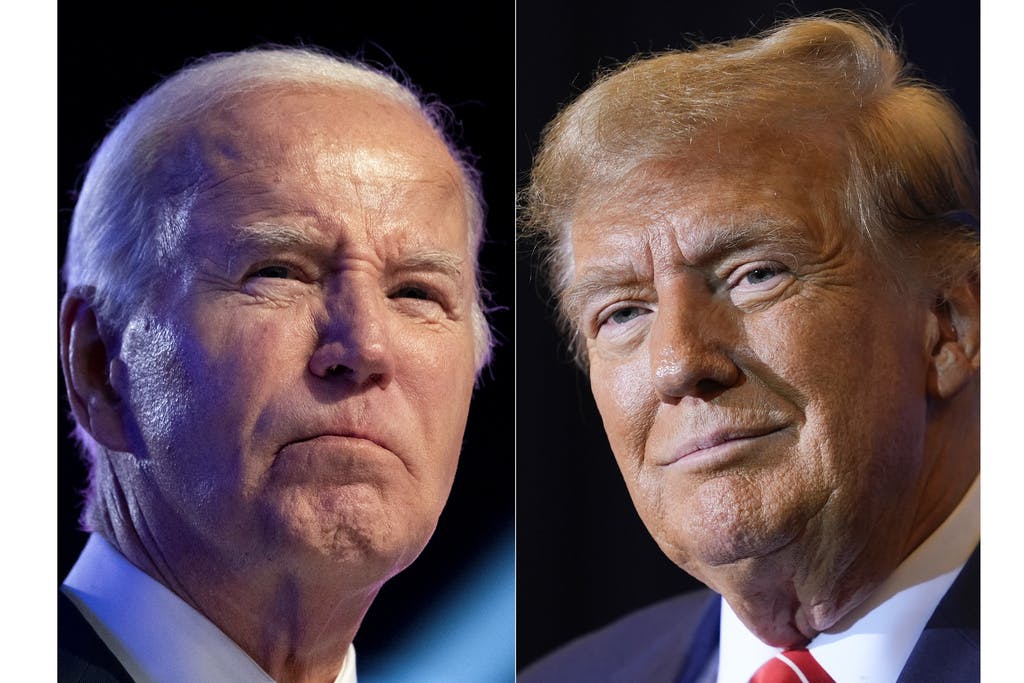Anti-Trump GOP Group Aims To Peel Off Nearly a Third of Trump’s 2020 Coalition
‘What they don’t like about Joe Biden is top of mind right now. When we put Donald Trump at top of mind again, they start to come around to the idea that Donald Trump is too much of a threat,’ one Republican strategist tells the Sun.

With a $50 million ad campaign slated to begin in the spring and run through November, Republican Voters Against Trump is hoping to peel off as much as 30 percent of President Trump’s 2020 coalition.
On Tuesday, the Republican Accountability PAC, which opposes Mr. Trump’s re-election, announced that it would be investing $50 million in ads aimed at flooding swing states with testimonials of voters who once supported Mr. Trump and no longer do.
In a statement accompanying the announcement, the PAC’s president, Sarah Longwell, said that the ads would establish “a permission structure that says that — whatever their complaints about Joe Biden — Donald Trump is too dangerous and too unhinged to ever be president again.”
“Who better to make this case than the voters who used to support him?” Ms. Longwell said.
The group said it had collected some 1,000 video testimonials from Republicans who have voted for Mr. Trump before. The ads will focus on the events of January 6, 2021; Mr. Trump’s potential criminality; his apparent conviviality with authoritarian leaders like President Orbán of Hungary; and a slate of other issues.
“I voted for Donald Trump in 2020. January 6 was the end of Donald Trump for me,” one Wisconsin Republican says in his video testimony. “The peaceful transfer of power is one of the defining pieces of our democracy, and I could not believe that someone I had formerly supported would get behind an effort that would throw that under the bus.”
In a conversation with the Sun, a Republican strategist working for the group, John Conway, made it clear that the group thinks it can convince a significant swath of Mr. Trump’s 2020 coalition not to vote for him again.
“We know that about 30 percent of the Republican Party say that they won’t support Donald Trump in polling data, and about 30 percent don’t think the 2020 election was stolen,” Mr. Conway says. “If Donald Trump is going to make this election about ‘Do you think the 2020 election was stolen’ … 30 percent of the Republican Party are not with him.”
An Associated Press VoteCast survey from early March found that across the first three primary states — Iowa, New Hampshire, and South Carolina — a significant portion of self-identified Republicans said they would be disappointed if Mr. Trump was nominated again and would not support him in November.
In Iowa, some 20 percent of voters said they’d be disappointed and wouldn’t vote for him. That number was about 33 percent in New Hampshire and 25 percent in South Carolina.
Because of a dearth of primary surveys in later primary states, the proportion of Republicans who won’t support Mr. Trump remains somewhat of a mystery. Mr. Conway, though, says his group has been able to create a profile of the voters most likely to say they’ve dropped Mr. Trump since 2020.
Mr. Conway says that white suburbanites with college degrees is one group that was once reliable Republican voters but have since realigned with the Democratic Party. “They have real concerns about our democracy, they have real concerns about where Donald Trump would take our party,” Mr. Conway says.
From these voters, Mr. Conway says he often hears that January 6, Mr. Trump’s “lying about the 2020 election,” his being found liable for the sexual abuse of a writer, E. Jean Carroll, and his posting that he would “suspend the Constitution” or be a “dictator for a day” are the most common reasons cited by self-identifying Republicans.
“They’re extremely worried about what a second Trump presidency would look like because he’s talking about using the government to get retribution on his enemies and surrounding himself with only loyalists,” Mr. Conway says.
He also described another type of Republican likely to have dropped Mr. Trump since 2020: voters who have the “Reagan hangover,” meaning those who have core political memories of President Reagan’s GOP and no longer recognize the party now firmly controlled by Mr. Trump.
In these voters’ minds, Mr. Trump’s GOP is diametrically opposed to Reagan’s GOP, and they disapprove of the way Mr. Trump has “fundamentally changed the Republican party,” Mr. Conway says.
In terms of what the group is hoping to accomplish with the ad campaign, Mr. Conway says it’s aiming to bring the contrast between Mr. Trump and President Biden back into focus.
“What they don’t like about Joe Biden is top of mind right now. When we put Donald Trump at top of mind again they start to come around to the idea that Donald Trump is too much of a threat,” Mr. Conway says.

